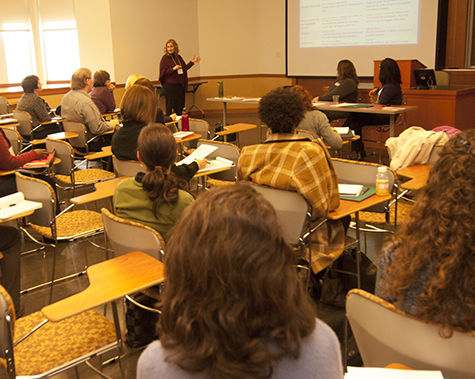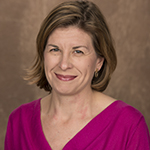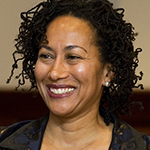
How does a first-generation college student relate to someone whose grandparents earned doctorates? How does an international student settling into life in the United States learn side-by-side with someone born and raised in the Midwest? In short, how do we all figure out how to teach, learn from and work with people from radically different backgrounds than our own?
The Teaching Center at Washington University in St. Louis is ramping up its efforts and programs to help faculty in all schools, departments and programs do just that.
Beth A. Fisher, PhD, director of academic services at the center, said some inclusive teaching and learning programs and workshops already are being offered, and more will roll out over the next two years.
These programs include workshops, a faculty fellowship and a faculty institute on inclusive teaching and learning. One goal of these programs is to ensure that different perspectives and backgrounds enrich teaching and learning at the university.
Including and challenging all students

“The goal of inclusive teaching and learning is to more successfully engage, include and challenge all students — as well as to open our own minds to new ideas and points of view that can expand our understanding of our disciplines and of what we hope to accomplish in our courses and in our research,” Fisher said.
The Office of the Provost, the Center for Diversity and Inclusion, the College of Arts & Sciences and the First Year Center also are collaborating on the effort.
“Considering and understanding different perspectives is essential to critical thinking and to the production of new knowledge,” said Adrienne D. Davis, JD, vice provost and the William M. Van Cleve Professor of Law. “Learning how to work, and to learn, effectively in diverse groups is crucial for the students, faculty and staff of Washington University.”
The center’s programming explores research on diversity in higher education and aims to help faculty and graduate students develop teaching practices that foster inclusion and improve learning in all disciplines.
For example, one Teaching Center workshop involves discussion of research on “stereotype threat,” a phenomenon in which awareness of cultural stereotypes that link identity to intelligence or academic ability can negatively affect students’ academic performance. The workshop also provides insights on strategies that instructors can use to reduce stereotype threat to support student learning and to improve retention of students from underrepresented identities and backgrounds.
Other workshops focus on how to foster respectful discussion and collaboration in the classroom, adjusting teaching strategies and the curriculum to encourage students from different backgrounds to work together and to see themselves as contributors to the field. Such strategies are especially important when courses include discussion of controversial topics.
These workshops are provided for multidisciplinary groups of faculty as well as for faculty in specific disciplines. The center also is working to incorporate concepts of inclusive teaching and learning into its programs for graduate students, including the annual teaching assistant orientation as well as advanced workshops for future faculty.
A valuable resource
The center recently offered a session on stereotype threat designed for faculty in the Brown School.
Tonya Edmond, PhD, associate professor at the Brown School who participated in the workshop, said the Teaching Center is a valuable resource for everyone from doctoral students to established, successful faculty.
She also has been an advocate for increasing faculty training on diversity in the classroom and said faculty have a duty to ensure they’re providing a high-quality education.
“Students need and deserve an inclusive environment that challenges them in constructive ways,” Edmond said.
Often, she said, it’s not faculty that say or do something inappropriate, but rather it’s one student’s interaction with another and the professor not knowing how to respond or turn it into a teaching opportunity.

The effort to help faculty and teaching assistants determine how to create an inclusive learning environment for students is a continuation of collaboration among faculty, deans, staff and students that formally began in 2013-14 with the university’s Mosaic Project.
But Fisher acknowledged the recent events in the St. Louis region have reinforced the need to ensure that Washington University is welcoming to all students; allows varied voices to be heard; and encourages faculty, students and staff to delve into difficult topics and conversations.
“Certainly, the events in our city spurred us to think about how we can make clear that the university is a place where we can investigate different perspectives,” Fisher said. “The center’s programs on inclusive teaching and learning are just one way in which the university community is engaging with these issues.”
Ultimately, Edmond said, the training not only will make faculty better and more confident teachers, but it also will ensure that students graduate and head into their professional lives equipped and comfortable in situations involving people with different backgrounds or values from their own.
New fellowships, advisory group
To encourage innovation in teaching, a faculty fellowship program on inclusive teaching and learning also is being developed. With support from the Office of the Provost, the program would provide a stipend for a two-year fellowship that would allow faculty members to work directly with the Teaching Center to add a new element to a course to encourage inclusive learning, as well as to evaluate the effectiveness of the change.
An advisory group on inclusive teaching and learning also is being assembled and will begin convening later this semester. The co-chairs are Jennifer Kapczynski, PhD, associate professor and director of graduate studies in the Department of Germanic Languages and Literatures in Arts & Sciences, and Rochelle Smith, assistant provost for diversity initiatives and director of diversity, summer programs and community outreach for the Division of Biology and Biomedical Sciences.
In addition, The Teaching Center is developing plans for a faculty institute on inclusive teaching and learning. It will include workshops designed to give faculty ideas for refining their courses as well as working-group time, in which faculty can develop specific plans for how they will incorporate such ideas into their courses.
Staff at The Teaching Center also can meet individually with faculty to develop ideas for integrating inclusive teaching and learning strategies into their teaching.
To learn more, visiting The Teaching Center website.